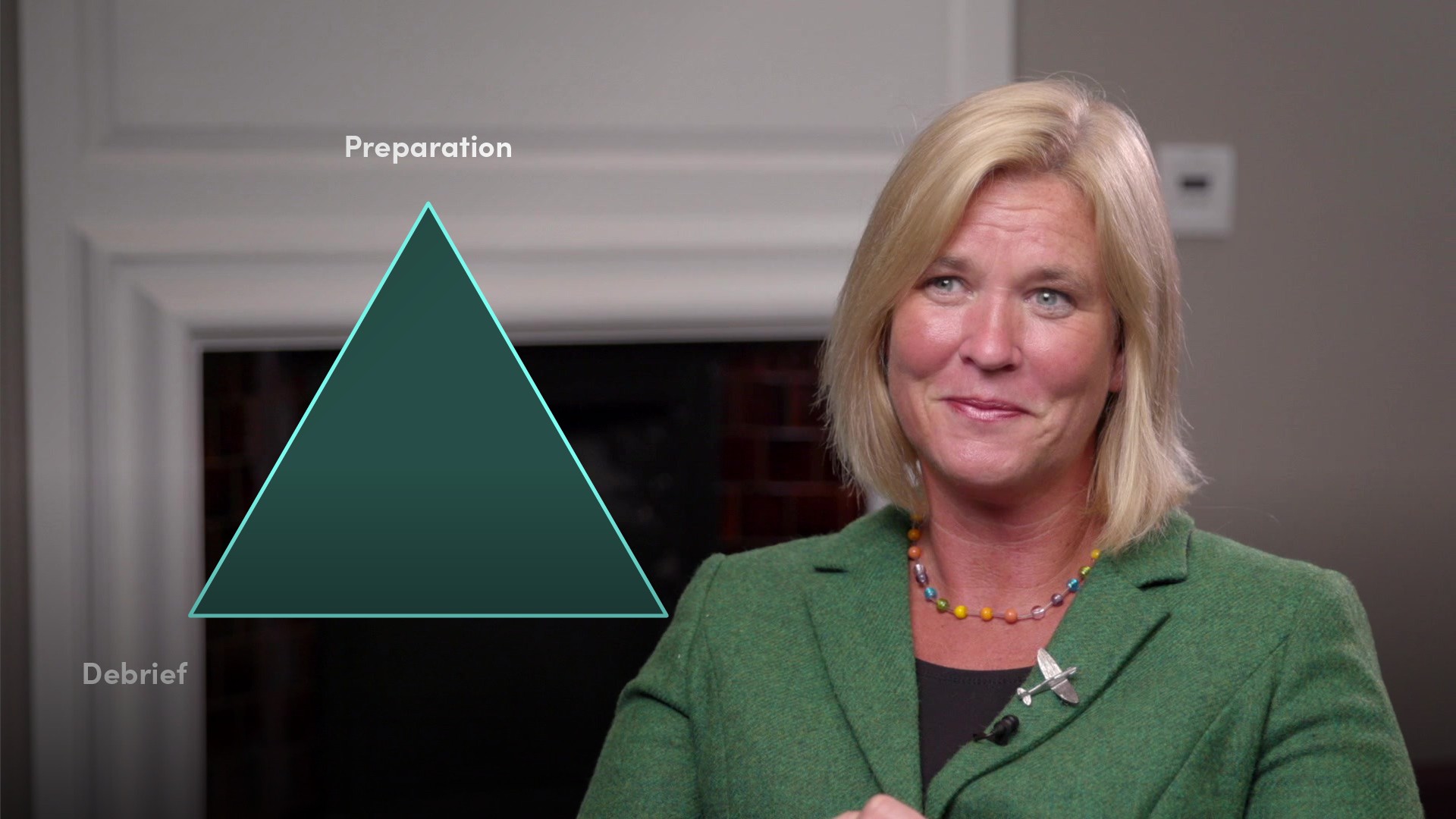
Enhancing Team Performance through Debriefing

Mandy Hickson
25 years: Ex-RAF pilot & leadership expert
In this video, Mandy talks about the 3 key areas leaders should focus on to build a world class team. She talks about how performance quality is defined by the execution of a well thought out plan. And then goes on to explain how performance and planning must constantly be reviewed in a debrief to achieve optimal results.
In this video, Mandy talks about the 3 key areas leaders should focus on to build a world class team. She talks about how performance quality is defined by the execution of a well thought out plan. And then goes on to explain how performance and planning must constantly be reviewed in a debrief to achieve optimal results.
Subscribe to watch
Access this and all of the content on our platform by signing up for a 7-day free trial.

Enhancing Team Performance through Debriefing
11 mins
Key learning objectives:
Define debriefing, and understand why it is important
Outline the three key tips for debriefs
Outline the five hallmarks of effective debriefing
Overview:
Debriefing is a simple, straightforward, powerful tool that you can save significant time and effort in the long-run by preventing execution errors - while getting stronger, smarter and faster than your competition. By learning from your successes and failures through debriefing, you can rapidly improve your team’s performance.
Subscribe to watch
Access this and all of the content on our platform by signing up for a 7-day free trial.
What is debriefing?
When you evaluate your own and your own team;s performance, whether you met your goals or not. You can identify and pinpoint how you can make changes to improve moving forward. The debrief is a critical aspect of achieving success.
What are some questions to consider when evaluating a successful debrief?
- What was the tone of the debrief?
- Who ran it? Was it a boss, a senior member of the team. Was there a steep hierarchical gradient? How did that make you feel? Did they empower you to speak up?
- What was the structure? Was there a structure?
- What were the problems encountered?
Why is debriefing important?
In business, debriefing empowers professionals and teams to strengthen relationships, manage risk, achieve high performance and meet objectives. Perhaps most importantly, it helps us overcome fear and uncertainty.
What are three key tips for debriefs?
- Target your reviews - Don’t debrief everything, there simply isn’t time. Review what’s most valuable or repeatable events
- Discourage people from talking in pairs - These lessons need to be heard at group-level so the whole team can learn, not just the individuals
- Nurture the ability and environment for people to objective - When in the middle of a situation and error, our natural response is to be defensive or see your performance through a biased lens. However, a valuable skill in a high performing team is the ability to objectively analyse your performance
What should a debrief consist of?
- Assessing what went right and what went wrong on a project
- Working out any mistakes
- Identifying lessons learned
What are the five hallmarks of effective debriefing?
- Why does debriefing accomplish all of this? - The act of debriefing helps us to cultivate a growth mindset, or the ability to view failure as a learning opportunity, and overcome our failures.
- When to do one? - It's vital to debrief immediately after a project’s conclusion to assess how the previous phases went and identify the key takeaways.
- Who should run the debrief? - Ideally it should be someone with experience of facilitating. It should not be the most senior person in the room
- How to conduct a debrief with your team? - It’s most important to set the right tone at the start of the debrief. It should be emphasised that is a psychologically safe environment and everyone should feel empowered to speak up. For example, you could include statements such as: this is a safe environment and there is no hierarchy
- What should a debrief cover?
Identify the scope and objectives. The first thing we need to do is to establish the facts: What was supposed to happen? What actually happened? Secondly, understand the cause: This needs the use of facilitated questions, Why did it happen? What, where, when, why, how, etc. Then lastly - the cure. Each of the 3 or 4 elements will have a cure and then an action to take forward. How can I incorporate that lesson into execution next time?
Subscribe to watch
Access this and all of the content on our platform by signing up for a 7-day free trial.

Mandy Hickson
There are no available Videos from "Mandy Hickson"





























